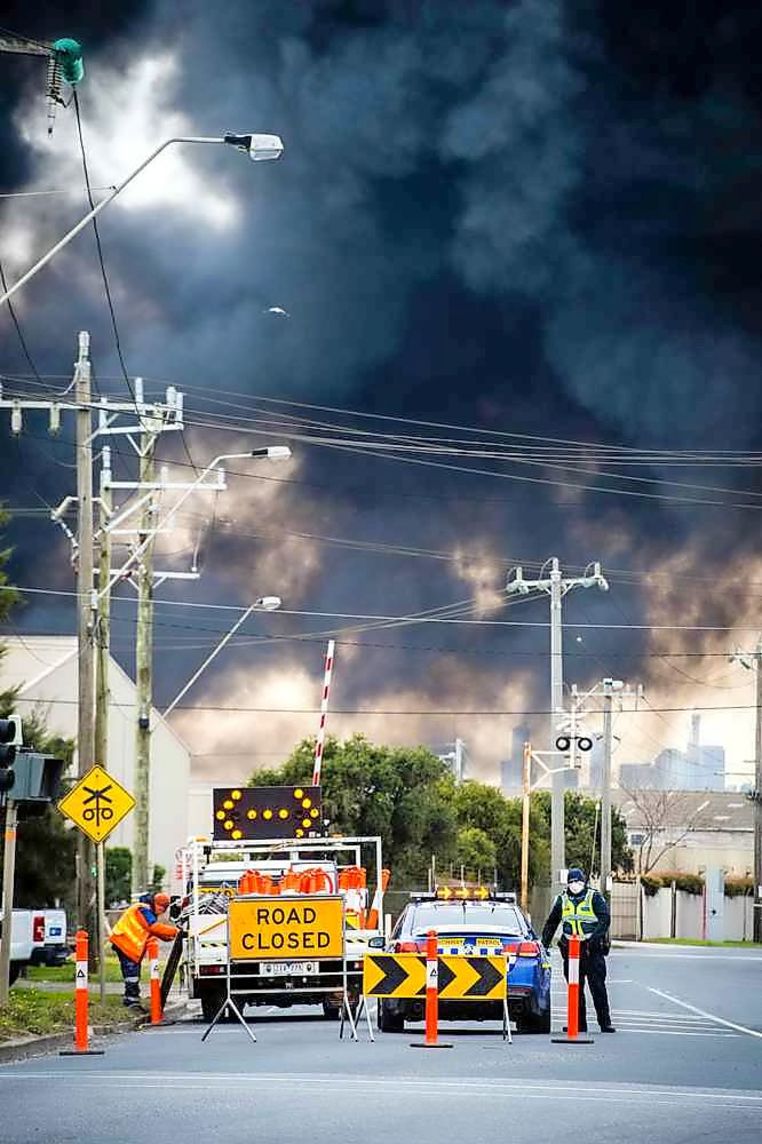By Benjamin Millar
Firefighters who battled the toxic Tottenham warehouse fire continue to suffer from a range of health effects one year on from the catastrophic blaze, an inquiry has heard.
Hundreds of firefighters were exposed to highly toxic smoke and debris produced by the burning of a cocktail of dangerous chemicals as they spent days trying to extinguish the suspicious fire.
The blaze broke out in an asbestos-riddled warehouse filled with a large quantity of 44-gallon drums containing unknown chemical and industrial waste.
Metropolitan Fire Brigade firefighters involved in battling the blaze have complained of ongoing nose bleeds, sore eyes, severe headaches and rashes, as well as exhaustion and memory loss.
Other impacts include lung irritation, coughing, sore throats, sinus infections and flu-like symptoms.
As of August 1 this year, 609 reports linked to the Tottenham fire had been entered into the MFB Safe system, which records incidents that result in injury or harm, generated by 467 individuals including 448 operational fire fighters.
The impacts have been outlined in an interim report tabled last week by the Parliamentary committee holding an inquiry into a series of fires triggered by the unsafe stockpiling of industrial waste and recyclable materials.
The report detailed 12 key findings, topped by the “serious risk” to emergency services personnel as a result of operators flouting regulations.
The committee also expressed concern that some community members have reported adverse health impacts as a result of the fires.
The United Firefighters Union (UFU) warned its members are being forced to attend fires that amount to “a premeditated ambush”.
“Such ambushes increase the risk of injury, illness and potential death of first responders due to the complete lack of warning or placarding to alert them to what they have to confront in the firefight that they have been deployed to,” its submission stated.
UFU secretary Peter Marshall told Star Weekly about 30 firefighters have been unable to return to full duties and their rehabilitation prospects remain unknown.
“Firefighting is an extremely dangerous occupation, when you have rogue operators engaging in illegal activity firefighters are effectively ambushed.”
Mr Marshall welcomed the state government introducing tougher legislation to punish such operators should they be caught out.
MFB acting deputy chief fire officer Adam Dalrymple told the inquiry that the fires reflect “blatant non-compliance” by industry.
MFB officer Peter Stafford warned of a “phoenix system” of cowboy operators acquiring a block of land cheaply, stockpiling waste and walking away with the money while authorities were left to deal with the clean-up.
The Australian Workers’ Union told the Committee that recyclers are often given notice of intended EPA visits, which allows dodgy operators to hide or move products off-site.
The EPA has been investigating potential breaches of environmental laws in the lead-up to the August 30 fire and expects to lay charges before the end of this year.
The final report is due at the end of November.








